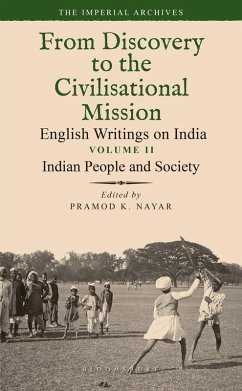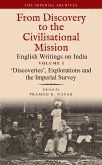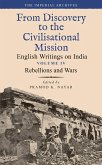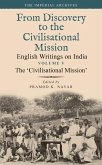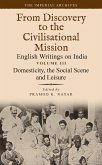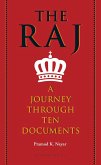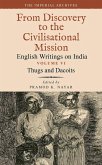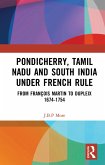India and the subcontinent stimulated the curiosity of the British who came to India as traders. Each aspect of life in India - its people, customs, geography, climate, fauna and flora - was documented by British travelers, traders, administrators, soldiers to make sense to the European mind. As they 'discovered' India and occupied it, they also attempted to 'civilise' the natives.
The present volumes focus on select aspects of the imperial archives: the accounts of "discovery" and exploration - fauna and flora, geography, climate - the people of the subcontinent, English domesticity and social life in the subcontinent, the wars and skirmishes - including the "Mutiny" of 1857-58 - and the "civilisational mission".
Volume 2 Indian People and Society includes English studies of Indian languages, people and communities, and the social order.
The landscape provided, understandably, endless prospects of the survey and the map. But the British were also keen on documenting the people. In the studies generated for 400 years, the British documented castes, religions, education, economies, professions, cultural practices, states of health and sickness, and other domains. With projects like the Census and the People of India, the land's inhabitants were classified and, eventually, also typecast and contributed to the colonial discourse about the native/colonised.
The present volumes focus on select aspects of the imperial archives: the accounts of "discovery" and exploration - fauna and flora, geography, climate - the people of the subcontinent, English domesticity and social life in the subcontinent, the wars and skirmishes - including the "Mutiny" of 1857-58 - and the "civilisational mission".
Volume 2 Indian People and Society includes English studies of Indian languages, people and communities, and the social order.
The landscape provided, understandably, endless prospects of the survey and the map. But the British were also keen on documenting the people. In the studies generated for 400 years, the British documented castes, religions, education, economies, professions, cultural practices, states of health and sickness, and other domains. With projects like the Census and the People of India, the land's inhabitants were classified and, eventually, also typecast and contributed to the colonial discourse about the native/colonised.

